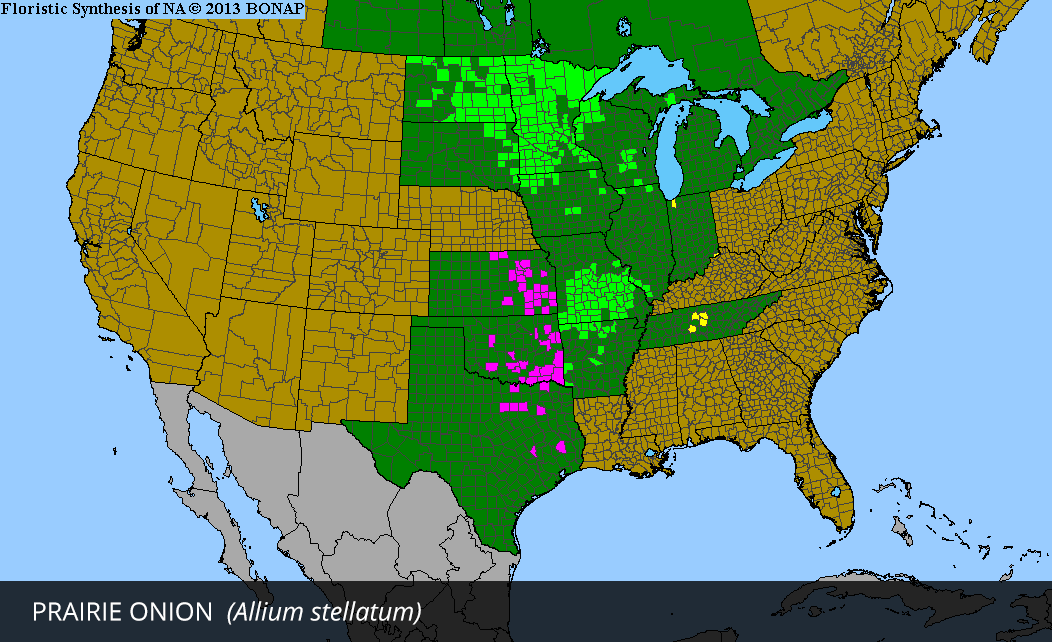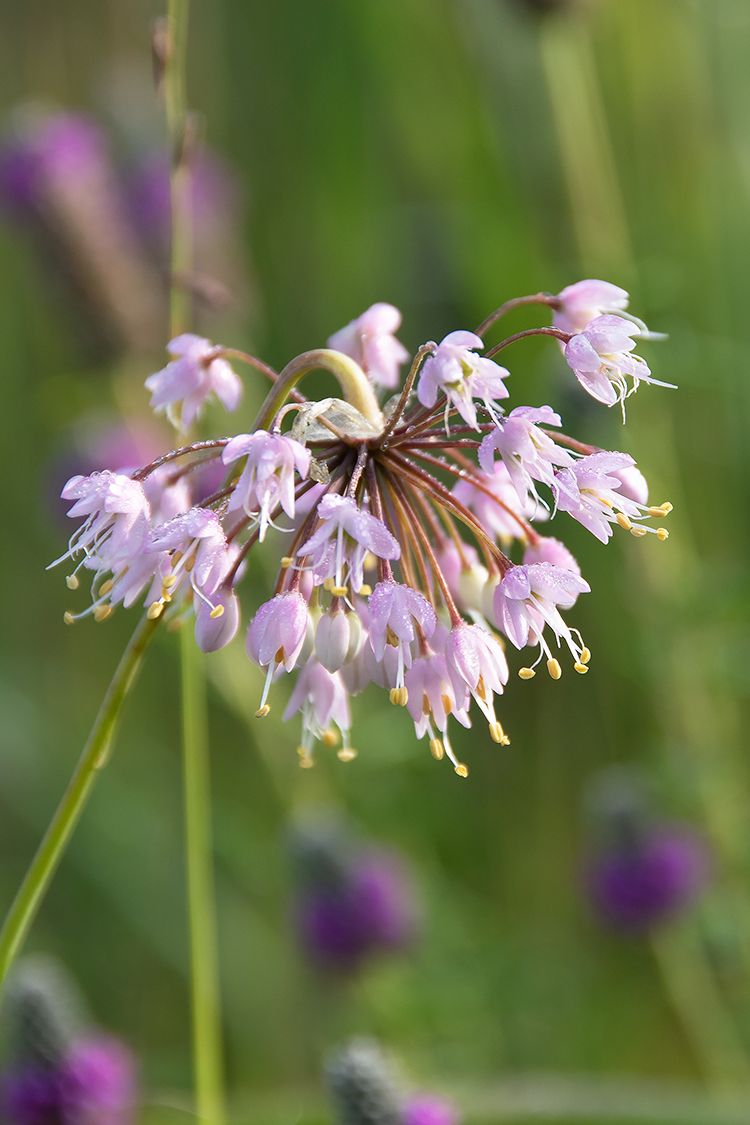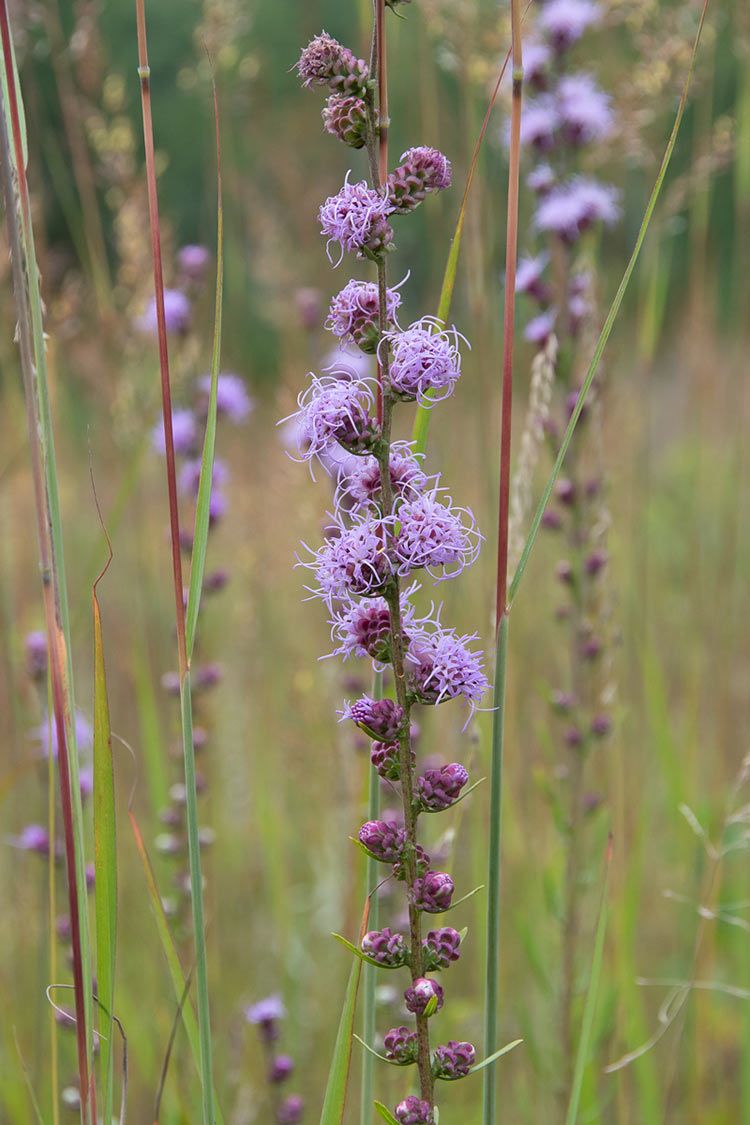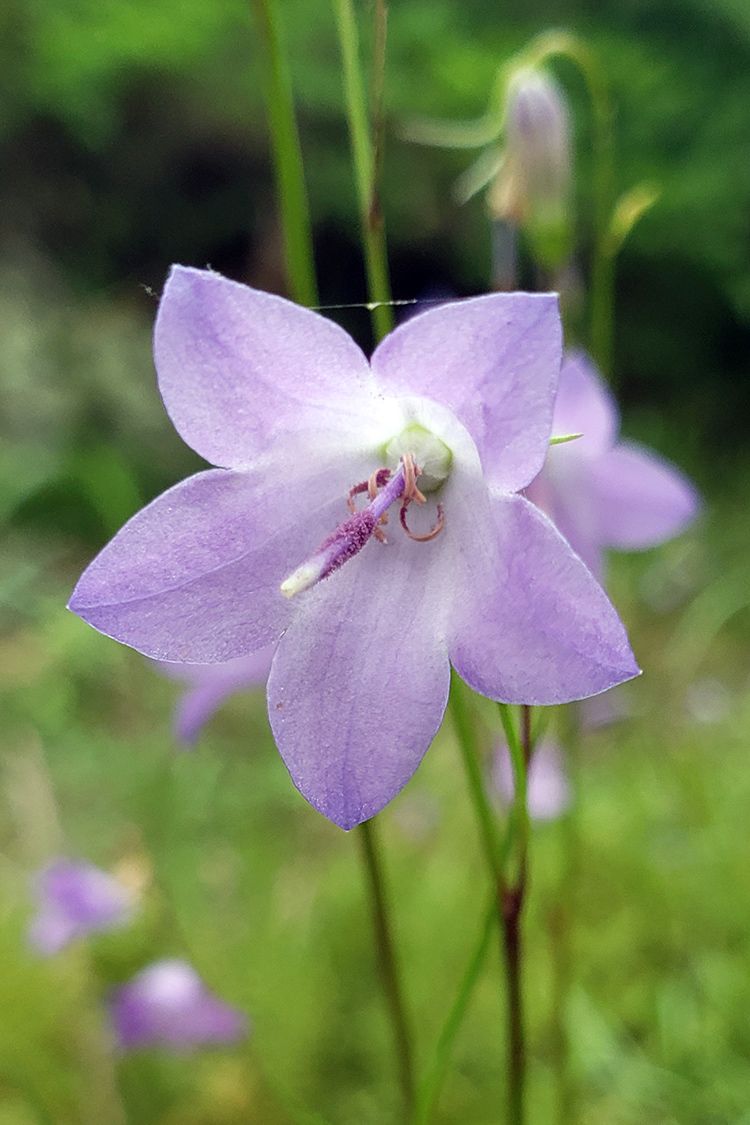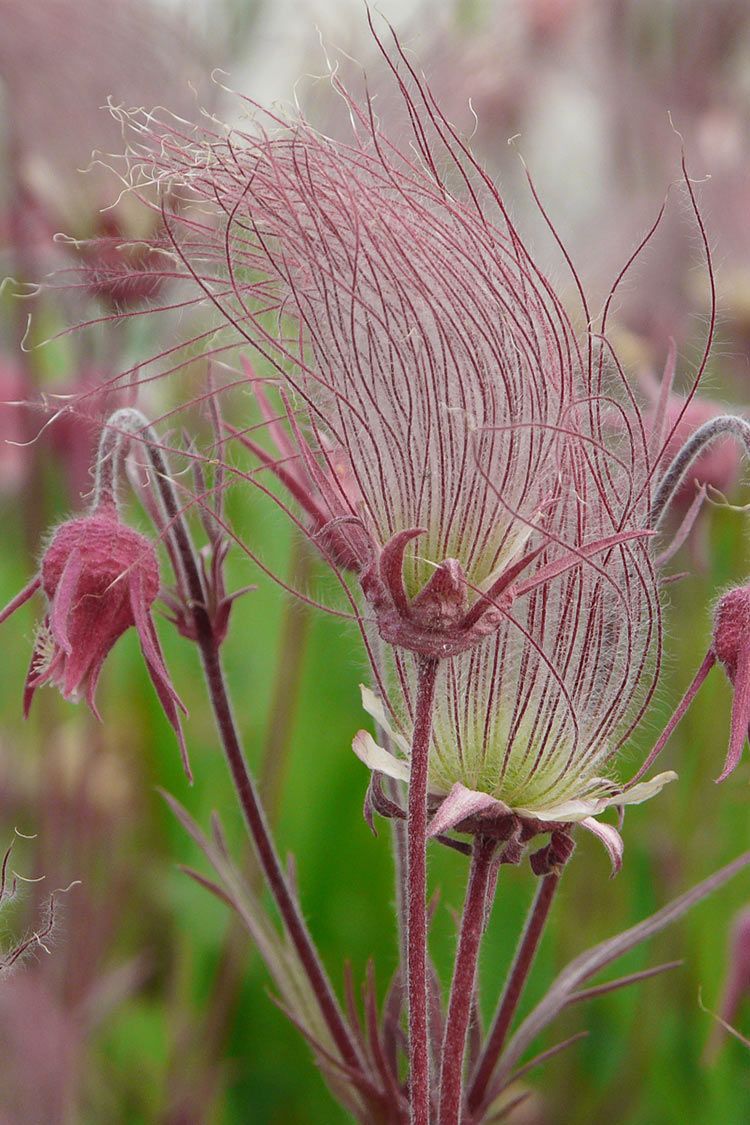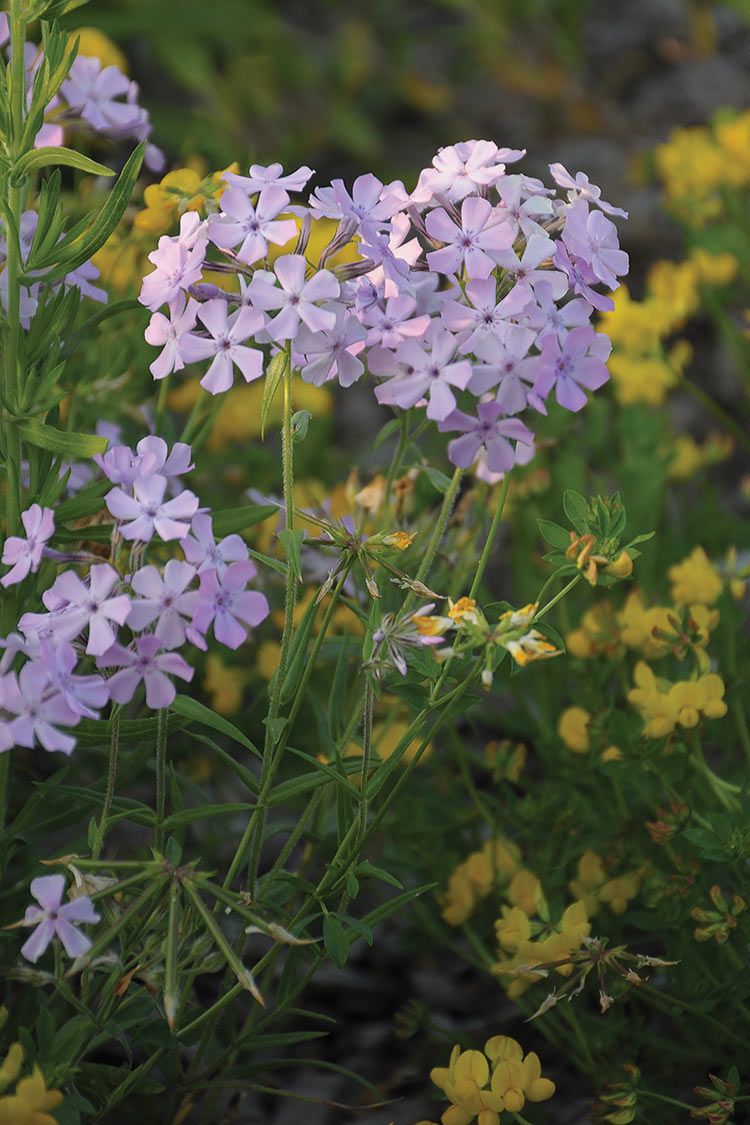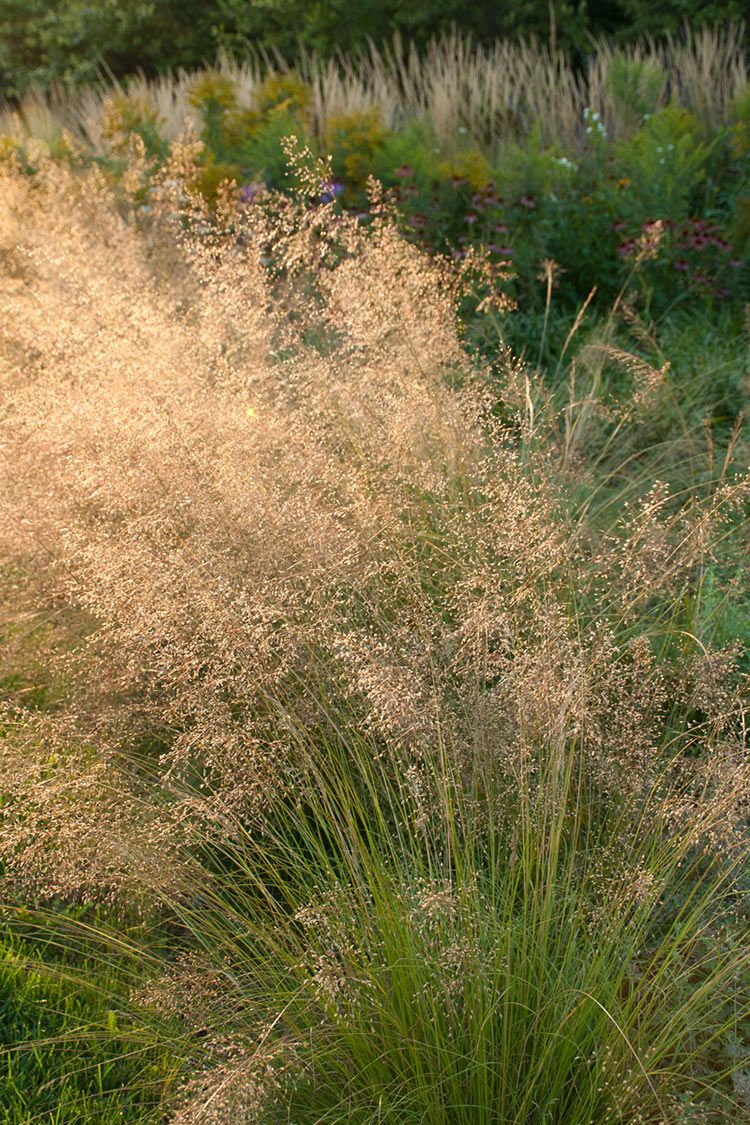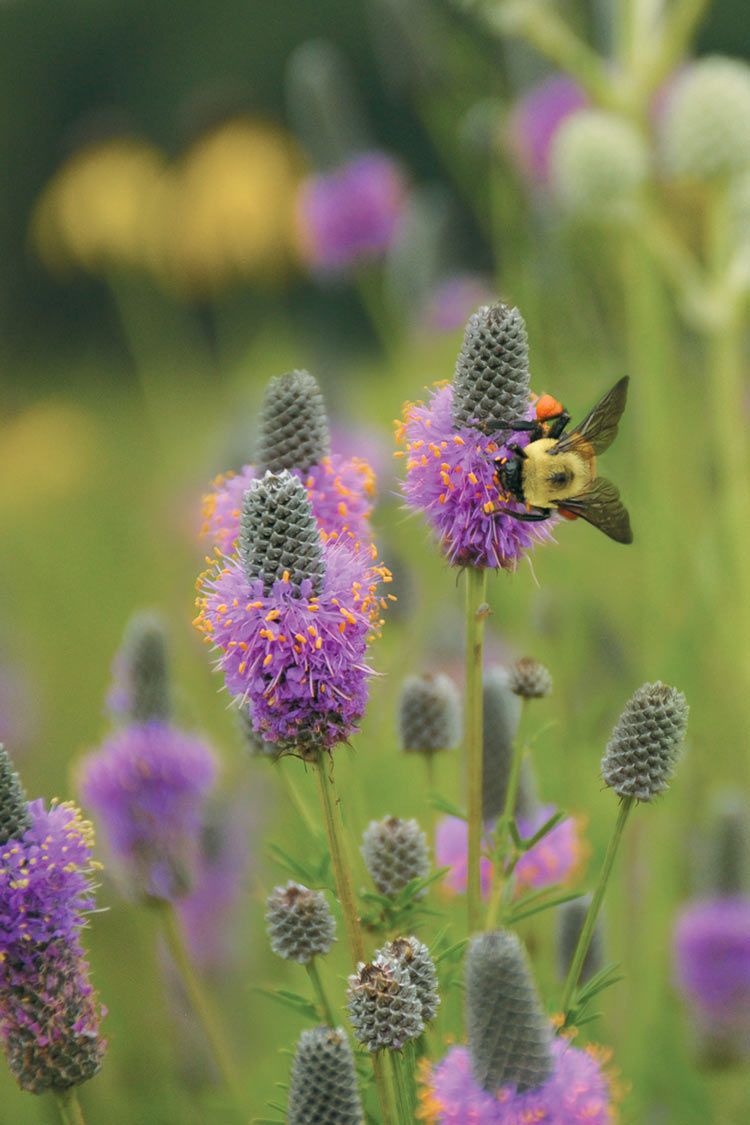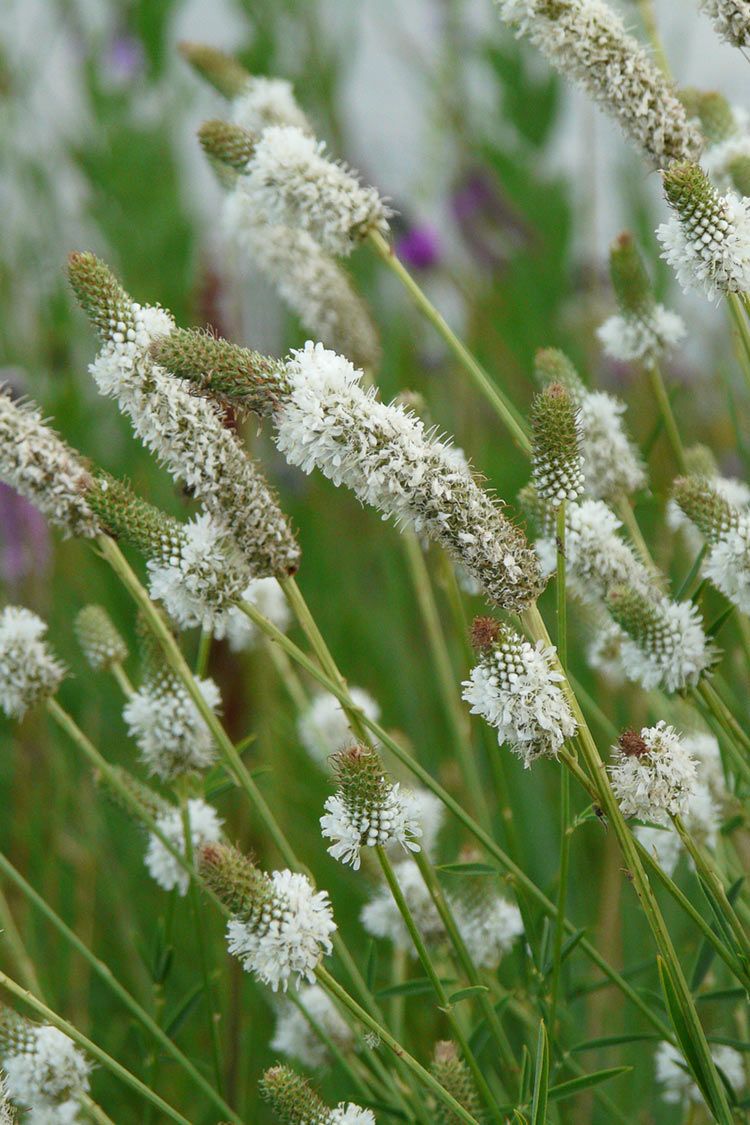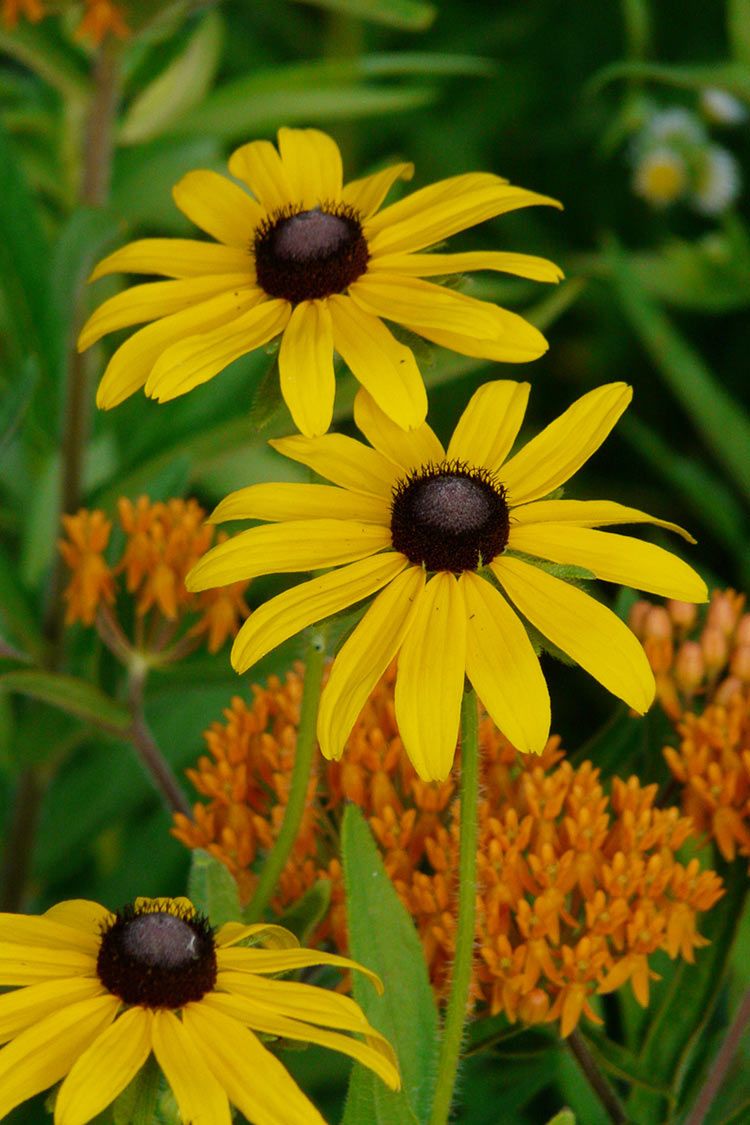Prairie Onion
As with other Alliums, Prairie Onion blooms on a single flowering stalk rising above the strappy basal leaves. The 4" flowering umbels are held upright atop the stalk, and offer a colorful burst of lavender-pink and white flowers that persists for three weeks or more in the heat of midsummer …
| Soil Type | Loam, Sand |
|---|---|
| Soil Moisture | Dry, Medium |
| Sun Exposure | Full Sun, Partial |
| Height | 1' - 2' |
| Bloom Color | Lavender |
| Bloom Time | July, Aug |
| Spacing | 6" |
| Zones | 3, 4, 5, 6, 7 |
| Root Type | Bulb |
| Benefits | Pollinators, Deer Resistant |
As with other Alliums, Prairie Onion (Allium stellatum) blooms on a single flowering stalk rising above the strappy basal leaves. The flowering umbels are held upright atop the stalk, and offer a colorful burst of lavender-pink and white flowers that persists for three or more weeks in the heat of midsummer.
This uncommon native bulb is very cold hardy with deep roots, resulting in a drought tolerant plant that will grow in some very inhospitable conditions. An ideal rock garden plant, Prairie Onion thrives on dry sandy soils and rocky sites, but will easily grow in average garden soil, as well. Competition from taller, more aggressive plants, is not well tolerated. Plant it with other low-growing companions for good long term success. Full sun is best and light shade is tolerated.
Allium stellatum is edible, but much more pungent than your average commercially grown onion, and can cause discomfort if ingested in large quantities. It is both deer and rabbit proof.




